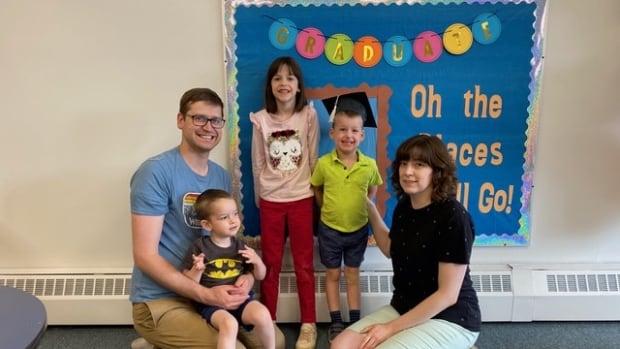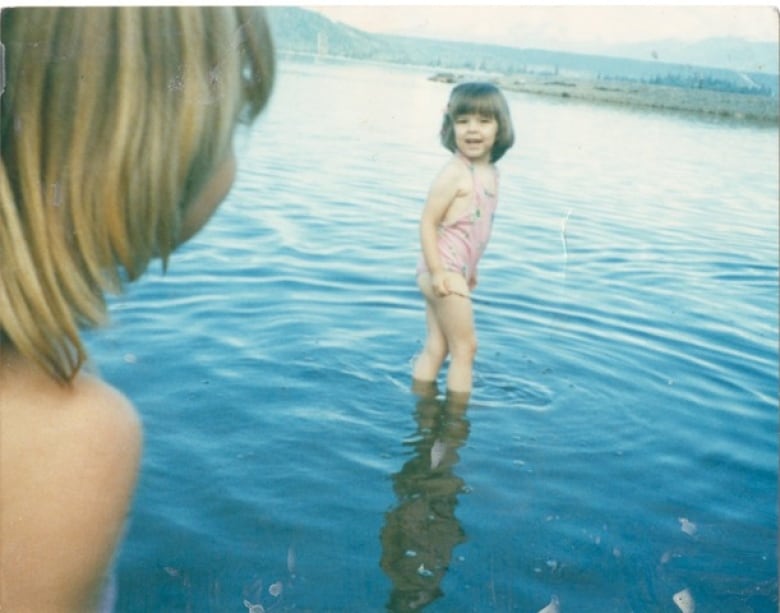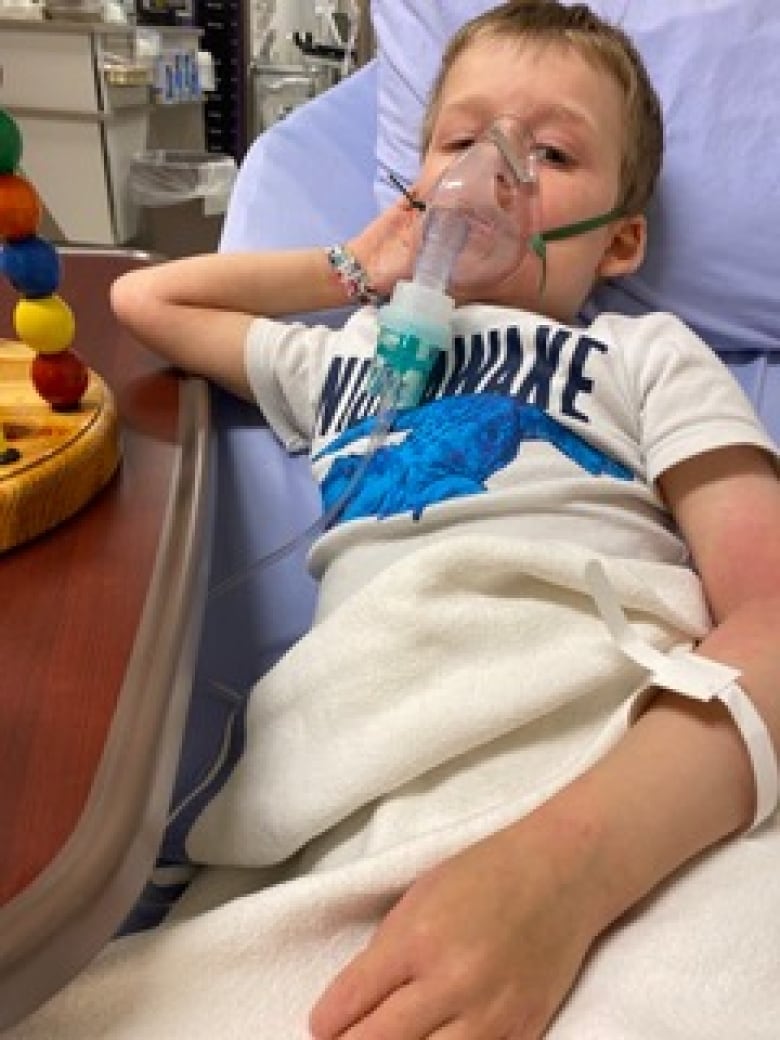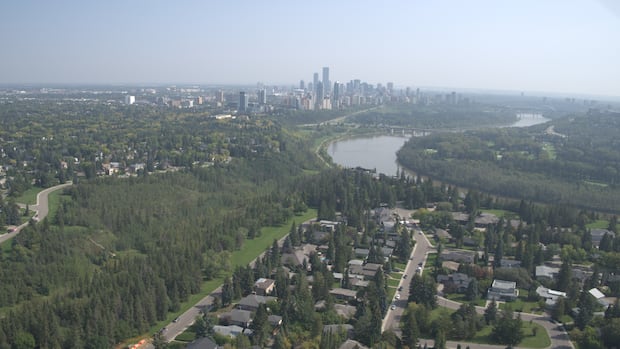
This First Person column is written by Megan Paxman, who lives in Wetaskiwin, Alta. For more information about First Person stories, see the FAQ.
It’s summer, 1990-something. My siblings and I spend our days running through the sprinkler, lazing on the deck and splashing in lakes. We take long road trips with our parents to visit family in another province or friends in the U.S.
No one is worried about air quality. Our parents don’t tell us to stay inside because it is dangerously hot. We smell smoke only when we are roasting marshmallows over a fire.
Fast forward.
It’s Mother’s Day 2023. The smoke has been hanging in the air for a couple of weeks now. The sun looks orange. My four-year-old son has been sleepy and unwilling to eat all morning. I notice that the skin between his ribs and at the base of his throat is pulling in between every inhale.
I call Health Link (the general health information line for Albertans). He’s in severe respiratory distress, the nurse tells me. Get him to the hospital now.

This is the beginning of my yearly wildfire season stress.
I haven’t always been so vigilant about weather and air quality. But my son has asthma, and I now live in a state of constant anxiety from May to October. The second I get a whiff of that telltale smell, I go into super-watchful mode. I’m obsessively checking the local air quality levels and his breathing while watching for haze on the horizon or an orange tint to the light.
What would be acceptable air quality for most people and even some other people with asthma can be dangerous for my little boy.
Preventative medications don’t seem, at the moment, to be enough. Multiple air purifiers are constantly running in our home, and this year we bought an air quality sensor. We’ve spent whole weeks almost exclusively inside our house because even small amounts of smoke exposure can send him to the ER.

It’s become so routine for us to stay inside on even mildly smoky days that even when the air is clear my kids can forget that the backyard is an option.
It’s hard for my active children to be cooped up inside during otherwise beautiful days. It’s extremely disappointing for them to miss out on community activities or time spent with family because the wind just happens to be blowing in the wrong direction.
Kevin McCullum from the Alberta Capital Airshed joins Nancy Carlson to talk air quality, and how this year is shaping up.
This summer we went to a huge family reunion in southern Alberta. The smoke wasn’t too bad and our son seemed to be doing better.
But by the second day, he needed his puffer every three hours. By the third night, my husband was taking him to the local ER. We left the next day, earlier than we had planned, and had to take him to our hometown ER that night, again with signs of severe breathing problems.
Juggling family expectations, my kids’ need for the outdoors and freedom and my son’s safety feels like juggling flaming torches on a tightrope at times. Something is going to fall. Someone is going to be unhappy.
Prioritizing my boy’s health and safety means that extended family will be disappointed, my kids will be sad about missing out and my husband and I will feel stressed.
Not putting his safety first means trips to the hospital. It means fear that this attack will be the worst yet.
Last summer, after the Mother’s Day ER trip that terrified me, I read in the news about another little boy who had asthma. That little boy didn’t survive the smoky summer. I’m still haunted by that story.
I’m no scientist, but my life experience has me convinced that climate change is real. It affects my family daily, May to October. I so wish that my kids could have the carefree, smoke-free summers I had, full of long trips and lake days and Popsicles on the deck. I hope for those things for their children. I hope they do not have to carry this burden of anxiety into their future summers.
For now, I will keep checking the air quality multiple times a day. I will watch the sky and sniff the air. I will give my little boy his medication and make sure he is breathing easily before I go to sleep each night. I will keep doing what I can and hope it will be enough for another year.
Do you have a compelling personal story that can bring understanding or help others? We want to hear from you. Here’s more info on how to pitch to us.
